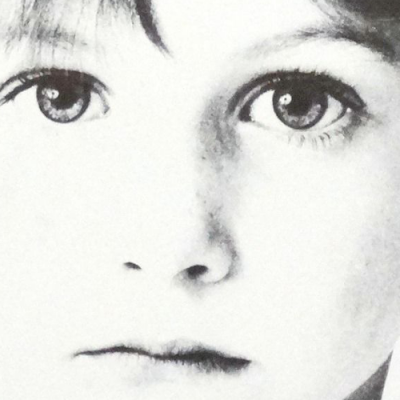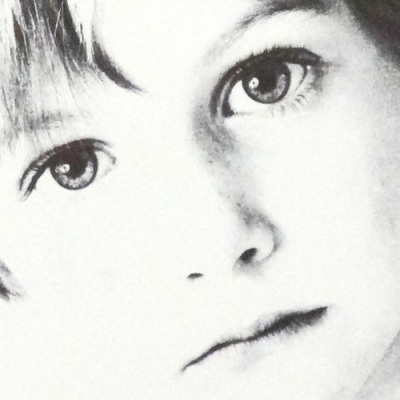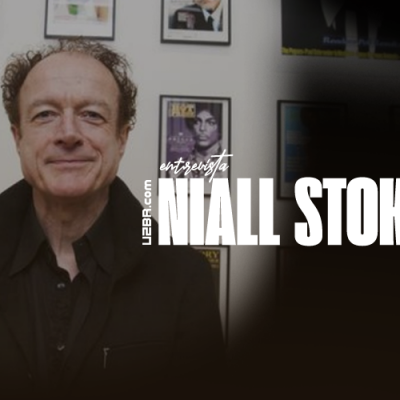Mesmo que alguns nomes não venham em nossas mentes quando pensamos nas histórias de algumas bandas, músicos ou grandes fatos, podemos garantir que nos bastidores de todo “bum” existe um sem-número de pessoas que fez tudo isso possível. E nesta nossa entrevista trazemos uma a qual fez a grande explosão chamada U2 se tornar realidade.
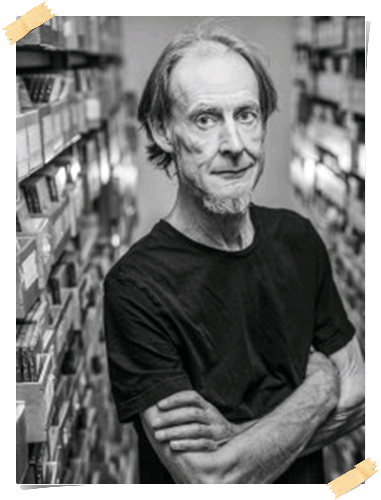
Ian Wilson durante 40 anos foi o responsável por conectar a Irlanda através da música, e possibilitou de alguma maneira, mesmo atuando em uma emissora local, que a voz deste pequeno país fosse ouvido além-mar. Wilson, em 1979, com um diploma de genética embaixo do braço, recém-formado na Trinity College, respondeu a um anúncio que tinha visto postado pela RTÉ Radio Two nos classificados da revista In Dublin para a qual escrevia na época. “Eles estavam procurando por alguém que gostasse de música, formado e soubesse algo sobre rádio. Pronto, esse era eu!” A sua bagagem vinha do que até então era a sua segunda atividade principal: organizar shows na faculdade em seu tempo livre. Os artistas na época? The Clash, The Stranglers e dezenas de outros. Além disso, tinha trabalhado com transmissões de rádios amadoras.
Desde o início do seu trabalho na RTÉ, Ian queria trazer para a emissora algo que já havia feito desde os tempos de amador: a gravação e transmissão de apresentações ao vivo, tanto dentro dos estúdios como de eventos externos. Apesar de uma certa resistência, Wilson no papel de produtor da rádio, acabou por brigar para poder levar a sua ideia em frente. E o objeto de uma dessas gravações foi uma jovem banda. Contudo, o caminho deles se cruzaram um pouco antes de qualquer registro.
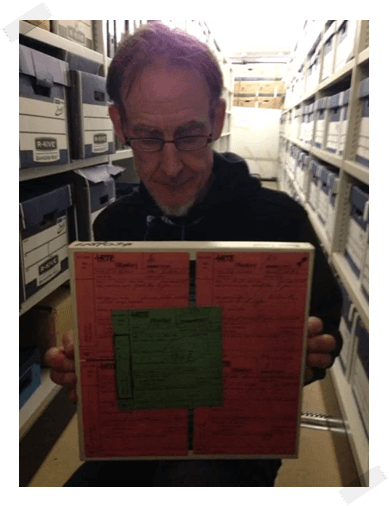
Ian havia conhecido o U2 em 1978, antes da banda ter um contrato firmado com qualquer gravadora. Na época, ele era Presidente da União dos Estudantes da Trinity College, e viu os garotos se apresentando algumas vezes no local. No ano seguinte, já no posto de um dos responsáveis pela produção do programa de Dave Fanning e, em contato com o empresário Paul McGuinness, tocou na rádio três músicas gravadas pelos jovens irlandeses para que os ouvintes escolhessem o single do compacto que seria lançado pelo U2. O resultado levou ao lançamento do “U2-3” em 26 de setembro de 1979 pela CBS.
No ano seguinte, Ian gravou com a banda a primeira fita para as sessões do Dave Fanning Show, além de ter transmitido para toda a Irlanda o famoso show no National Stadium, em Dublin, em fevereiro daquele ano. Em outubro de 1980, o U2 lançou o “Boy”.
Depois de quatro décadas, Wilson se retirou da RTÉ em 2018.
Esta é a primeira de uma série de entrevistas exclusivas que faremos para celebrar os 40 anos do lançamento do “Boy”. Ian fala sobre os primeiros shows da banda, a escolha do "U2-3", a primeira sessão de rádio do U2, entre outros assuntos.
Como foi seu primeiro contato com o U2 e o que você pensou quando ouviu a banda pela primeira vez?
No final de 1978, quando começaram a tocar em pequenos shows, os conheci na Trinity College. Lembro-me de Bono me perguntando sobre Paul McGuinness, que eu conhecia, e minha opinião sobre ele como um empresário em potencial. Eu dei um "joinha" para ele! Também consegui agendá-los para o programa de TV em que estava trabalhando, "Our Times", mais tarde.
O que você via de diferente no U2 em relação às bandas daquela época?
Eles eram focados, ambiciosos, dispostos a aprender. Bono e Adam iam e se jogavam.
Você viu alguns shows do U2 no Trinity College. Como eram esses shows?
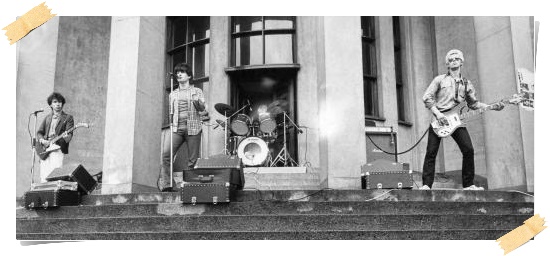
Muito cru, mas muito animado e a primeira coisa que se notava era o baterista e a motivação que dava a eles. Também vi seus shows em uma antiga garagem ao lado do Dandelion Market, um mercado de pulgas em edifícios degradados e não utilizados no centro de Dublin e em vários bares e discotecas de Dublin. Também fui a Cork para vê-los e consegui voltar com eles e assim por diante.
Você gravou o show do U2 no National Stadium em 1980. Quais suas lembranças daquela noite?
Era a última data de sua primeira turnê irlandesa, e gravamos como um ato de apoio à banda e para recompensar sua audácia ao pensar que uma pequena banda poderia tocar uma turnê nacional e terminar em um local de 2000 lugares, o maior local de música em Dublin na época. Ficamos surpresos com o número de pessoas que compareceram ao show, aproximadamente metade da capacidade. Para uma banda nova receber 1000 pessoas em Dublin era algo grande naquela época. A essa altura, o show deles estava tomando forma. Bono havia se transformado em um vocalista muito marcante e a banda era justa, e tinha material suficiente para lidar com um set de mais de 40 minutos. Misturamos estéreo direto para duas faixas, pois não tínhamos máquinas multifaixas portáteis. Poucas pessoas utilizavam em 1980, pois elas custavam cerca de 10.000 libras (talvez 150.000 em dinheiro atual). O show correu bem, eles gostaram da nossa gravação e pegaram uma das músicas da gravação para a reedição especial do "Boy" alguns anos atrás.
Áudio do show no National Stadium
Quais suas lembranças daquela gravação do U2 para a primeira sessão do Dave Fanning Show em 1980?
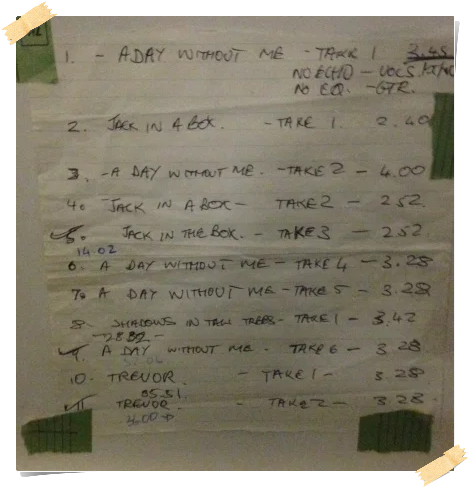
A rádio RTÉ possuía dois estúdios de gravação totalmente equipados, com máquinas multifaixas Studer 16 Track e consoles de Neve. Para quem entende de áudio ou gravação, é como dizer Rolls Royce para alguém que entende de carro. Mas eles nunca foram usados para música de rock/pop, pois foram "projetados" para música acústica. Depois de fazer lobby e com o apoio da gerência da 2fm (o canal em que trabalhei), fomos autorizados a conferir o estúdio em busca de música "alta" e em quem escolheríamos apostar. U2, é claro. O acordo com a banda era de uma sessão de experimentação, e que a transmitiríamos uma ou duas vezes e seria isso. A cópia está nos arquivos da RTÉ e o U2 tem a única outra cópia. Novamente, foi direto para o estéreo, sem fitas multifaixas, pois estávamos apenas "checando" o estúdio. É claro que o engenheiro de som e eu concordamos que o estúdio funcionou perfeitamente bem para música amplificada e kits de bateria e mais de mil sessões de bandas jovens aconteceram desde então. Fizemos várias tomadas de 5 faixas - algumas você conhecerá como "Shadows In Tall Trees", "A Day Without Me" e outras como "Jack In A Box" nunca foram lançadas.
Vocês tocaram o “U2-3” na rádio e pediram aos ouvintes para que escolhessem o single do Lado A. Houve grande adesão das pessoas?
Você deve se lembrar que tivemos que pedir aos ouvintes que postassem sua resposta, o que os levaram a escrever, com um endereço, pagar por um selo, colocá-lo no correio e levar um ou dois dias para chegar até nós. Isso foi antes das pesquisas por telefone, mensagens de texto ou internet. Então, recebemos centenas de respostas entre o anúncio na segunda-feira e ter a banda de volta na sexta-feira para obter a resposta. Portanto, em termos de fato, era uma nova banda e o incômodo de enviar um cartão ou carta, essa foi uma resposta muito boa. A ideia foi elaborada por Paul McGuinness e por mim.
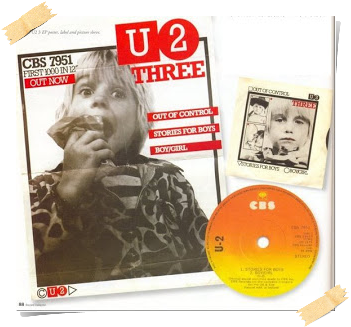
O “U2-3” é hoje um dos itens mais valiosos para colecionadores. O que você lembra sobre a época do lançamento? Você ainda tem a sua cópia?
Não, eu não tenho a minha. Ela desapareceu há muito tempo. Lembro-me de quando foi lançado, tocando bem na 2fm, alcançando as paradas irlandesas de singles. Ele foi lançado apenas na Irlanda, pois o acordo foi com a CBS Records. Mais tarde, a Island (com relutância) assinou com a banda depois de já tê-los rejeitados.
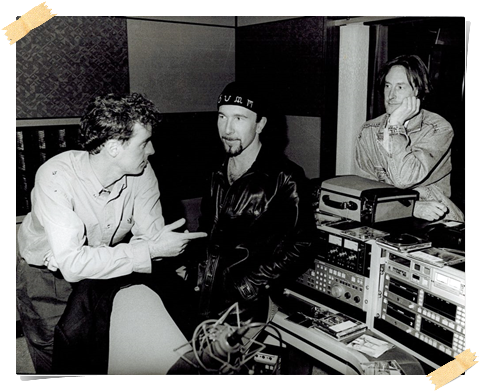
Você acredita que o apoio que você e Dave Fanning deram ao U2 no início da carreira foi fundamental para o sucesso da banda?
Fundamental? Não tenho certeza. Muito importante. Sim! Enorme aumento de confiança para a banda. Sim! Ajudando a torná-los uma grande banda na Irlanda antes de explodirem internacionalmente. Mas Dave e eu sabíamos que tínhamos que estabelecer e mostrar o show no espaço nacional e uma das principais maneiras de fazer isso era apoiar os talentos locais, acreditando que eles eram bons o suficiente e que, em algum momento, a ajuda das bandas também beneficiaria o show.
Você tem lembranças de momentos descontraídos com a banda naquela época para compartilhar conosco? Ou o relacionamento de vocês eram estritamente profissional?
No início eu passava mais tempo com eles, quando jovens, e ainda tenho boas relações com todos, mas enquanto Dave sai bastante com eles, eu não muito, mas ainda sou convidado para todos os shows e estou em contato com eles.
A banda está na estrada há muito tempo. Você tem um período favorito deles?
Obviamente, os "early days". Assistir a essa evolução foi incrível! O último show em Dublin foi seriamente brilhante, mas o mais surpreendente foi vê-los no início da turnê Zoo TV na arena do Boston Celtics no St. Patrick’s Day. Boston tem uma enorme conexão irlandesa (pense em JFK) e no St. Patrick’s Day! Era algo completamente novo em shows ao vivo em estádios e ouvir as músicas do "Achtung Baby" ao vivo pela primeira vez foi surpreendente. Recebemos assentos praticamente na primeira fila do show.
Falando sobre novas bandas, existe algum grupo que te relembra a mesma energia do U2 no início carreira deles?
Bom, aqui vai uma surpresa: Inhaler. Exceto que Eli é um cantor melhor do que seu pai foi nessa fase...
A equipe do U2BR gostaria de agradecer a gentileza de Ian por aceitar nosso convite e conceder um pouco do seu tempo para falar conosco. Nosso muito obrigado, Ian!
ENGLISH VERSION
Even if some names do not come to our minds when we think of the stories of some bands, musicians or great facts, we can guarantee that behind the scenes of every "boom" there are countless people who made all this possible. And in this interview we have one that made the big explosion called U2 come true.
Ian Wilson for 40 years was responsible for connecting Ireland through music, and made it possible in some way, even working on a local broadcaster, that the voice of this small country could be heard overseas. Wilson, in 1979, with a degree in genetics under his arm newly graduated from Trinity College, answered to an ad he had seen posted by RTÉ Radio Two in the classifieds of In Dublin magazine for which he was writing at the time. “They were looking for someone who liked music, graduated and knew something about radio. There, that was me!”. His baggage came from what until then was his second main activity: organizing college shows in his spare time. The artists at the time? The Clash, The Strangl0ers and dozens of others. In addition, he had worked with amateur radio broadcasts.
Since the beginning of his work at RTÉ, Ian wanted to bring to the broadcaster something he had already done since his amateur days: recording and broadcasting live performances, both inside the studios and outside events. Despite some resistance, Wilson in the role of radio producer, ended up fighting to be able to take his idea forward. And the object of one of these recordings was a young band. However, their path was found just before any record.
Ian had met U2 in 1978, before the band had a contract with any record label. At the time, he was President of the Trinity College Student Union, and he saw the boys perform a few times on site. The following year, already in the position of one of those responsible for the production of Dave Fanning's program and, in contact with businessman Paul McGuinness, he played on the radio three songs recorded by the Irish youth so that listeners could choose the single from the compact that would be released by U2. The result led to the launch of "U2-3" on September 26, 1979 by CBS.
The following year, Ian recorded the first tape with the band for the Dave Fanning Show sessions, as well as broadcasting the famous show at the National Stadium in Dublin in February of that year. In October 1980, U2 released "Boy".
After four decades, Wilson retired from RTÉ in 2018.
This is the first in a series of exclusive interviews that we will be doing to celebrate the 40th anniversary of “Boy”. Ian talks about the band's first shows, the choice of "U2-3", the recording of a tape for the radio, among other subjects.
How was your first contact with U2 and what did you think when you first heard them?
Late 1978, when they started playing small gigs… [I] met them at show in Trinity College. I remember Bono asking me about Paul McGuinness, whom I knew, and my opinion of him as a potential manager. I gave him a thumbs up! [I] also managed to book them on to TV show I was working for - Our Times later in 1978.
What did you see different about U2 compared to bands at that time?
They were focused, ambitious, willing to learn. Bono and Adam would go and hustle.
You saw some U2 shows at Trinity College. What were these shows like?
Very raw, but very lively and the first thing you noticed was the drummer and what drive this gave them. Also saw their shows in an old garage at the side of the Dandelion Market, a flea market in run down and unused buildings in the centre of Dublin, and at various pubs and clubs in Dublin, went to Cork to see them and got lift back with them and so on.
You recorded the U2 concert at National Stadium in 1980. What are your memories of that night?
It was the last date of their first Irish tour, and we recorded it as an act of support to the band and to reward their audacity in thinking a small band could play a national tour and end in a 2000 seater venue, the biggest music venue in Dublin at the time.
We were surprised at the number who came to the show, roughly half capacity for a new band to pull 1000 in Dublin was something back then. By now their live show was taking shape. Bono had developed into a very striking frontman and the band were tight and had enough material to handle a 40 minute plus set. We mixed direct to 2 track stereo, as we had no portable multitrack machines. Not many people did in 1980, as they cost around £10,000 (maybe 150,000 in current money). Show went well, they liked our recording, and took one of the songs from the recording for their Boy reissue special album a few years back.
What are your memories of that U2 recording for the first session of Dave Fanning Show in 1980?
RTÉ radio had 2 fully equipped recording studios, with Studer 16 Track multitracks and Neve consoles. To anybody in audio or recording, this is like saying Rolls Royce to somebody into cars. But they had never been used for Rock/Pop music as they were "designed" for acoustic music. After some lobbying and with the support of the 2fm (the channel I worked for) management, we were allowed to check out the studio for "loud" music. And who would we choose to come in. U2 of course. The agreement with the band was that it was a try out session, and that we would broadcast it once or twice and that would be it. The copy sits in the RTE archives and U2 have the only other copy. Again, it was straight to stereo, no multitrack tapes, as we were only "checking" the studio. Of course, the sound engineer and I agreed that the studio worked perfectly well for amplified music and drum kits and well over a thousand young band sessions have happened since. We made multiple takes of 5 tracks - some you will know "Shadows In Tall Trees", and "A Day Without Me" and some like "Jack in a Box" were never released.
You played U2-3 on the radio and asked the listeners to pick the Side A single. Was there great adhesion of people?
You have to remember that we had to ask listeners to post in their answer, which took them writing it out, with an address, paying for a stamp, putting it in the post and then it takes one or 2 days to get to us. This was before phone polling, text messages or the internet. So, we got several hundred replies between announcing it on a Monday and having the band back on the Friday to get the answer. So, in terms of the fact it was a new band, and the hassle of sending a card or letter, this was a very good response. The idea was cooked up by Paul McGuinness and myself.
U2-3 is nowadays one of the most valuable items for collectors. What do you remember about the time of release? Do you still have your copy?
No, I don't have a copy. It went missing long ago. I remember it coming out, getting good airplay on 2fm, reaching the Irish singles charts. This was only released in Ireland, as the deal was with CBS Records. It was later that Island (reluctantly) picked them up having already rejected them.
Do you believe the support you and Dave Fanning gave U2 at the beginning of their career was fundamental to the band’s success?
Fundamental? Not sure. Very important. Yes. Huge confidence boost for the band. Yes. Helping make them a big band in Ireland before they broke internationally. But, Dave and I knew that we had to establish the show on national radio and one of the major ways to do this was to be seen to support local talent in the belief that they were good enough, and that at some stage that help for bands would also benefit the show.
Do you have memories of laid back moments with the band back then to share with us? Or was your relationship strictly professional?
Early on I would have spent more time with them, as young lads, and [I] am still on very good terms with them but while Dave hangs out with them I bit, I don't much, but [I] am still invited to all their shows and am in touch with them.
The band has been on the road for a long time. Do you have a favorite period of them?
Obviously early on. Watching this develop was amazing. Their last show in Dublin was seriously brilliant but the most astounding was seeing them at the start of the ZOO TV tour in Boston Celtics indoor arena on St Patrick's Day. Boston has a huge Irish connection (think of JFK) and on St Patrick's Day! It was something completely new in live stadium shows and hearing the Achtung Baby stuff live for the first time was astounding. We were given virtually front row seats for the show
Speaking about new bands, do you think there are any that reminds you of U2 in the early days?
Now here's a surprise! Inhaler. Except Eli is a better singer than his dad was at this stage...
The U2BR staff would like to thank Ian for his kindness in accepting our invitation and giving a bit of his time to answer our questions. Thank you very much, Ian!

